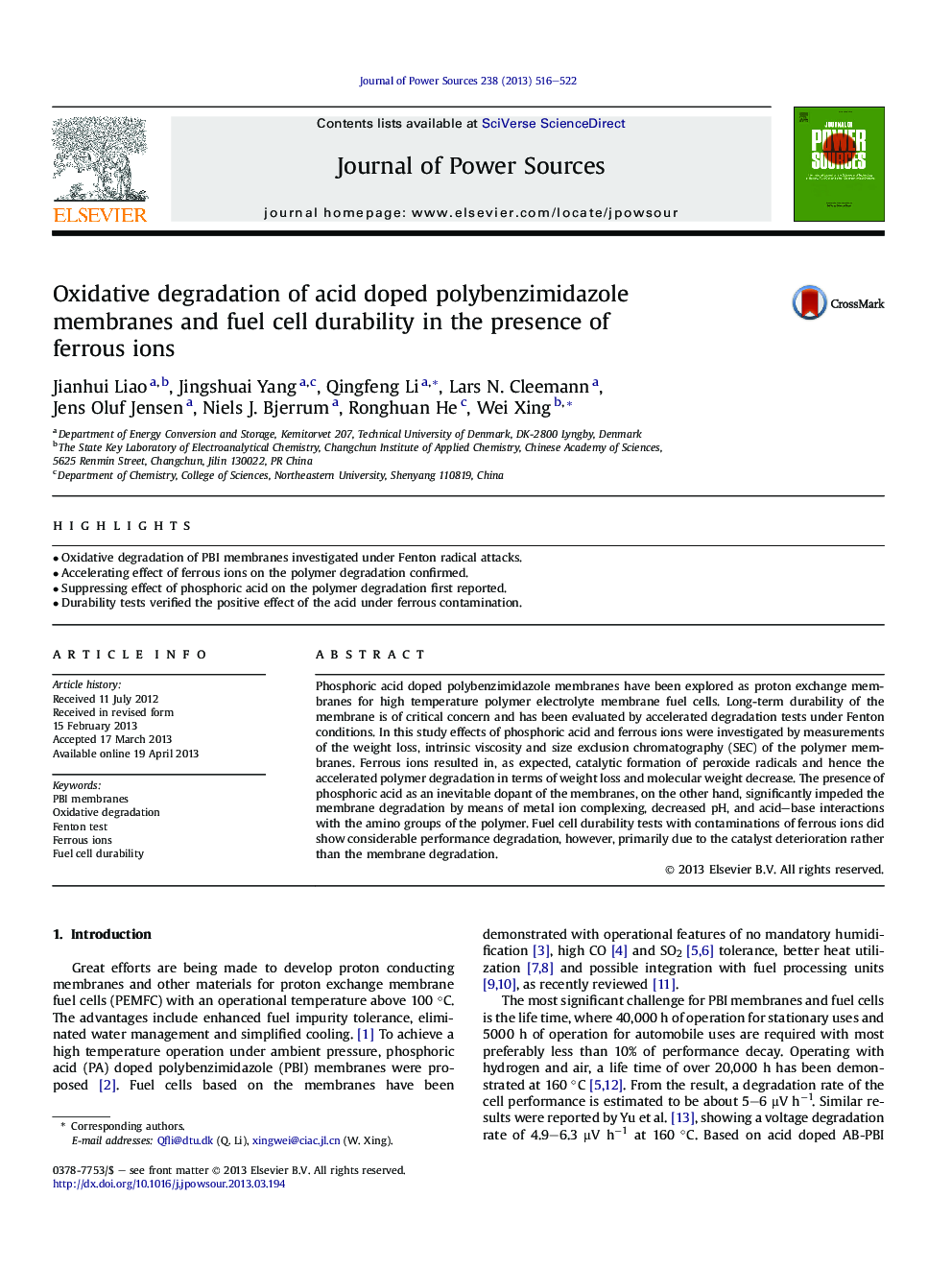| Article ID | Journal | Published Year | Pages | File Type |
|---|---|---|---|---|
| 1284358 | Journal of Power Sources | 2013 | 7 Pages |
•Oxidative degradation of PBI membranes investigated under Fenton radical attacks.•Accelerating effect of ferrous ions on the polymer degradation confirmed.•Suppressing effect of phosphoric acid on the polymer degradation first reported.•Durability tests verified the positive effect of the acid under ferrous contamination.
Phosphoric acid doped polybenzimidazole membranes have been explored as proton exchange membranes for high temperature polymer electrolyte membrane fuel cells. Long-term durability of the membrane is of critical concern and has been evaluated by accelerated degradation tests under Fenton conditions. In this study effects of phosphoric acid and ferrous ions were investigated by measurements of the weight loss, intrinsic viscosity and size exclusion chromatography (SEC) of the polymer membranes. Ferrous ions resulted in, as expected, catalytic formation of peroxide radicals and hence the accelerated polymer degradation in terms of weight loss and molecular weight decrease. The presence of phosphoric acid as an inevitable dopant of the membranes, on the other hand, significantly impeded the membrane degradation by means of metal ion complexing, decreased pH, and acid–base interactions with the amino groups of the polymer. Fuel cell durability tests with contaminations of ferrous ions did show considerable performance degradation, however, primarily due to the catalyst deterioration rather than the membrane degradation.
